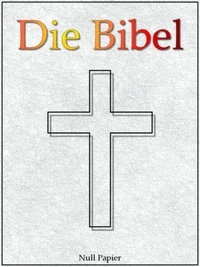In "The Bondage of the Will, " Martin Luther engages in a profound theological discourse that addresses the complexities of human will and divine grace. Written as a direct response to Erasmus' "On Free Will, " Luther employs a rigorous academic style, utilizing biblical exegesis and logical reasoning to argue that the will is bound by sin and cannot achieve salvation without the intervention of God's grace.
The text situates itself within the burgeoning Reformation movement, challenging the prevailing scholastic orthodoxy and showcasing the tensions between free will and predestination that marked 16th-century religious thought. Martin Luther, a seminal figure in Christian history, emerged from a background steeped in theological rigor and existential inquiry. His own struggles with guilt, sin, and the pursuit of salvation forged a deep conviction that defined his writings.
"The Bondage of the Will" encapsulates Luther's revolutionary ideas, which not only redefined the relationship between humanity and divinity but also ignited debates that would shape Protestantism and Christianity as a whole. This seminal work is a must-read for anyone interested in theology, philosophy, or the history of the Reformation. Luther's compelling arguments and passionate rhetoric invite readers to scrutinize their own views on free will and divine sovereignty, making this text both relevant and transformative in today's theological discussions.
In this enriched edition, we have carefully created added value for your reading experience:
- A succinct Introduction situates the work's timeless appeal and themes.
- The Synopsis outlines the central plot, highlighting key developments without spoiling critical twists.
- A detailed Historical Context immerses you in the era's events and influences that shaped the writing.
- An Author Biography reveals milestones in the author's life, illuminating the personal insights behind the text.
- A thorough Analysis dissects symbols, motifs, and character arcs to unearth underlying meanings.
- Reflection questions prompt you to engage personally with the work's messages, connecting them to modern life.
- Hand-picked Memorable Quotes shine a spotlight on moments of literary brilliance.
- Interactive footnotes clarify unusual references, historical allusions, and archaic phrases for an effortless, more informed read.
In "The Bondage of the Will, " Martin Luther engages in a profound theological discourse that addresses the complexities of human will and divine grace. Written as a direct response to Erasmus' "On Free Will, " Luther employs a rigorous academic style, utilizing biblical exegesis and logical reasoning to argue that the will is bound by sin and cannot achieve salvation without the intervention of God's grace.
The text situates itself within the burgeoning Reformation movement, challenging the prevailing scholastic orthodoxy and showcasing the tensions between free will and predestination that marked 16th-century religious thought. Martin Luther, a seminal figure in Christian history, emerged from a background steeped in theological rigor and existential inquiry. His own struggles with guilt, sin, and the pursuit of salvation forged a deep conviction that defined his writings.
"The Bondage of the Will" encapsulates Luther's revolutionary ideas, which not only redefined the relationship between humanity and divinity but also ignited debates that would shape Protestantism and Christianity as a whole. This seminal work is a must-read for anyone interested in theology, philosophy, or the history of the Reformation. Luther's compelling arguments and passionate rhetoric invite readers to scrutinize their own views on free will and divine sovereignty, making this text both relevant and transformative in today's theological discussions.
In this enriched edition, we have carefully created added value for your reading experience:
- A succinct Introduction situates the work's timeless appeal and themes.
- The Synopsis outlines the central plot, highlighting key developments without spoiling critical twists.
- A detailed Historical Context immerses you in the era's events and influences that shaped the writing.
- An Author Biography reveals milestones in the author's life, illuminating the personal insights behind the text.
- A thorough Analysis dissects symbols, motifs, and character arcs to unearth underlying meanings.
- Reflection questions prompt you to engage personally with the work's messages, connecting them to modern life.
- Hand-picked Memorable Quotes shine a spotlight on moments of literary brilliance.
- Interactive footnotes clarify unusual references, historical allusions, and archaic phrases for an effortless, more informed read.

 , qui est-ce ?
, qui est-ce ?